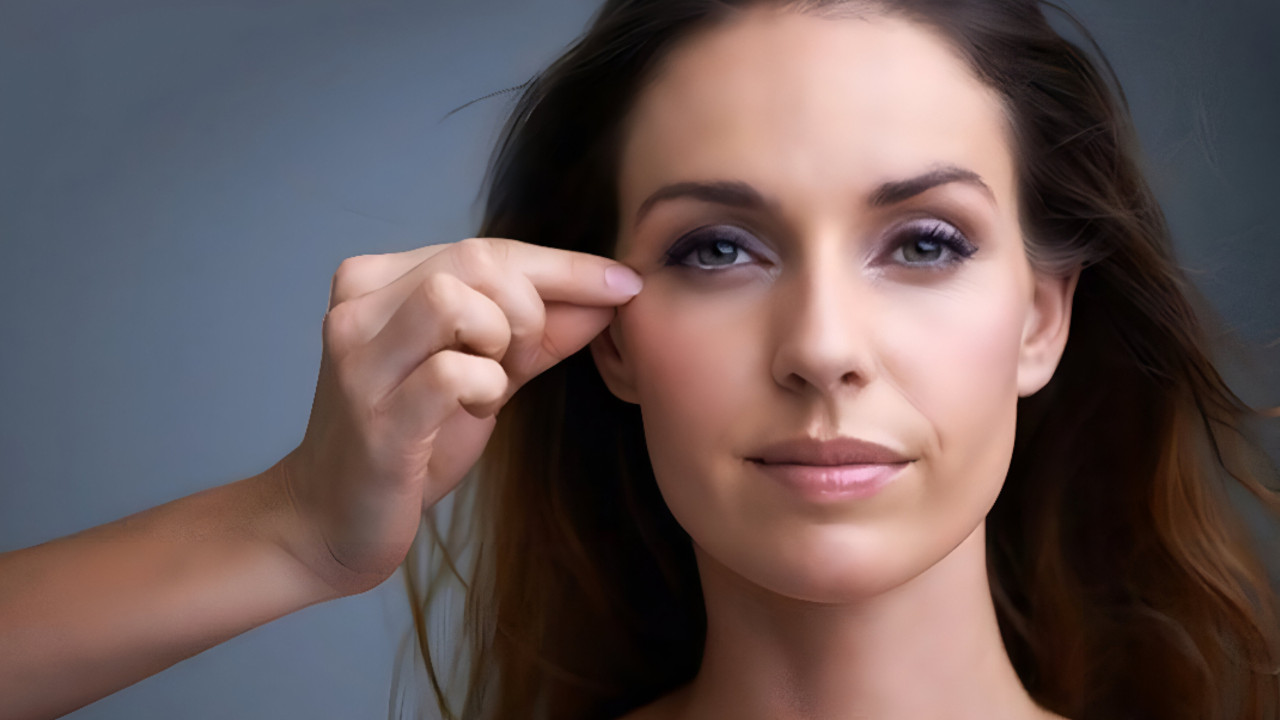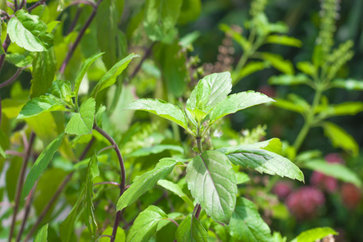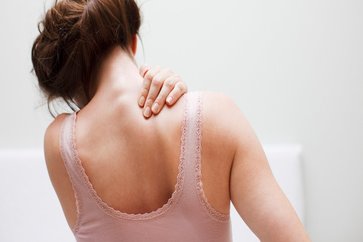Top Ayurvedic Treatments for Anti-Aging and Rejuvenation
In Ayurvedic scriptures, aging is considered a natural process driven by the gradual degeneration of bodily tissues (dhatus), influenced by a combination of physical, psychological, and environmental factors. It is viewed not merely as a decline, but as a dynamic phase of life that can be balanced and supported through mindful living. Ayurveda emphasizes that aging is inevitable, but its speed and impact can be influenced by how well we align our daily habits with nature’s rhythms. By maintaining harmony in the doshas and nurturing vitality (ojas), one can experience graceful aging with sustained health and clarity. The primary causes include:
Ayurveda emphasizes that aging is inevitable, but its speed and impact can be influenced by how well we align our daily habits with nature’s rhythms. By maintaining harmony in the doshas and nurturing vitality (ojas), one can experience graceful aging with sustained health and clarity. The primary causes include:
- Imbalance in Vata Dosha: An increase in vata and pitta along with a decrease in kapha can lead to heightened catabolic activity, causing the body to wear down more quickly.
- Weak Digestive Fire (Agni): When agni is low, nutrient assimilation is impaired, which can weaken tissues and reduce vitality.
- Low Ojas (Vital Energy): Ojas is the subtle essence of all bodily tissues and a key indicator of overall health and immunity. A depletion in ojas reflects a decline in physical and mental resilience.
- Unhealthy Lifestyle: Poor dietary habits, lack of proper sleep, and sedentary behavior contribute significantly to premature aging.
- Chronic Stress: Mental and emotional stress disrupts hormonal balance and depletes ojas, accelerating the aging process.
- Environmental and Seasonal Factors: Harsh weather, pollution, and seasonal transitions can aggravate doshas and weaken the body’s natural defenses.
Symptoms of Aging According to Ayurveda
In Ayurveda, aging (Jara) is recognized as a natural and progressive process marked by the gradual decline of bodily strength, mental sharpness, and tissue vitality. These symptoms arise due to the increasing dominance of Vata dosha in the later stages of life, leading to dryness, instability, and degeneration. The signs of aging can be both subtle and visible, including:
- Decline in sensory functions – reduced hearing, vision, taste, and smell
- Loss of muscle strength and tone – resulting in fatigue, frailty, and slower movement
- Stiffness and reduced flexibility of blood vessels – impacting circulation
- Decreased efficiency of the heart – lower stamina and energy levels
- Weakening of immune response – increased susceptibility to illness
- Reduced endocrine function – hormonal imbalances and slower metabolism
- Cessation of reproductive capabilities – in both men and women
- Cognitive decline – weakening of memory, attention, and decision-making
- Visible physical changes – such as wrinkles, graying or thinning hair, dryness of skin and joints
- Mental changes – like increased anxiety, fearfulness, or restlessness, often linked to Vata imbalance
Ayurveda emphasizes that while these symptoms are natural, their onset and intensity can be greatly influenced by lifestyle, diet, mental habits, and alignment with natural cycles.
Factors Affecting Aging According to Ayurveda
According to Ayurveda, aging (Jara) is a natural yet modifiable process influenced by both inherent and external factors.
While genetic makeup sets the foundation, various lifestyle, mental, and environmental factors deeply influence how rapidly or gracefully aging unfolds.
Ayurveda emphasizes that by aligning with nature’s rhythms and maintaining doshic balance, the aging process can be slowed and vitality preserved.
1. Genetic Factors (Beeja)
Genetics are considered one of the innate causes (Adibala Pravritta) of aging. Modern science identifies specific genes and proteins like rapamycin that regulate growth and aging. Ayurveda similarly recognizes constitutional tendencies (Prakruti) inherited from parents, which influence one’s rate of aging and overall resilience.
2. Metabolism and Oxidative Stress
Metabolic processes sustain life but also produce byproducts such as free radicals. These oxidative agents can damage cells and accelerate aging. In Ayurveda, this is reflected in the concept of Agni (digestive/metabolic fire). When Agni is imbalanced or weak, it leads to the accumulation of Ama (toxins), hastening tissue degeneration.
3. Wear and Tear of Tissues (Dhatu Kshaya)
Daily life and biological processes naturally cause tissue wear. However, when this wear is excessive and cellular repair is compromised, aging accelerates. Ayurveda links this to the gradual depletion of Dhatus (bodily tissues) and Ojas (the essence of immunity and vitality).
4. Lifestyle Choices (Ahara & Vihara)
Poor dietary habits, irregular routines, lack of exercise, substance abuse, and insufficient rest disrupt bodily harmony. Ayurveda stresses the importance of a balanced diet (Satmya Ahara), proper daily routines (Dinacharya), and seasonal adaptations (Ritucharya) to prevent premature aging.
5. Psychological Factors and Mental Health
Mental and emotional health play a vital role in aging. Positive traits like optimism, emotional balance, contentment, and spiritual engagement are associated with longevity and stronger Ojas. On the other hand, chronic stress, fear, anxiety, and unresolved emotions can aggravate Vata and weaken both body and mind, speeding up the aging process.
Ayurvedic Treatment for Anti-Aging
Ayurveda approaches aging (Jara) not as a disease but as a natural phase of life that can be gracefully managed through balance, nourishment, and rejuvenation.
The branch of Ayurveda dedicated to promoting longevity and youthfulness is called Rasayana Tantra. Rasayana therapies aim to preserve vitality (Ojas), strengthen immunity, rejuvenate tissues (Dhatus), and enhance mental clarity.
Here are key Ayurvedic treatments and approaches for anti-aging:
1. Rasayana Therapy (Rejuvenation Therapy)
Rasayana is a specialized Ayurvedic therapy that revitalizes the body and mind, delays the aging process, and promotes longevity.
- Herbal Rasayanas: Formulations like Chyawanprash, Ashwagandha, Shatavari, Amalaki (Amla), Guduchi, and Brahmi are classic rejuvenators.
- Medhya Rasayana: Herbs that rejuvenate the mind and intellect, such as Mandukaparni, Yashtimadhu, Shankhpushpi, and Brahmi.
2. Panchakarma (Detoxification Therapies)
Panchakarma is a five-fold purification treatment used to cleanse the body of accumulated toxins (Ama), balance the doshas, and restore vitality.
- Vamana (therapeutic vomiting)
- Virechana (purgation)
- Basti (medicated enemas – especially beneficial for Vata disorders)
- Nasya (nasal therapy)
- Raktamokshana (bloodletting, used selectively)
These treatments are customized based on the individual’s constitution and age.
3. Dinacharya & Ritucharya (Daily and Seasonal Routines)
Following Ayurvedic routines helps maintain balance and prevent doshic aggravation, which accelerates aging.
- Wake and sleep cycles aligned with nature
- Abhyanga (daily oil massage) to nourish skin and calm Vata
- Nasya and oil pulling to support sensory functions
- Seasonal detox and dietary adjustments to align with environmental changes
4. Diet and Nutrition (Ahara)
A nourishing, sattvic (pure and balanced) diet plays a key role in healthy aging.
- Include rejuvenating foods like ghee, milk, dates, almonds, and fresh fruits
- Use spices like turmeric, ginger, cinnamon for digestion and circulation
- Eat freshly prepared meals, avoid processed or excessively spicy foods
5. Mental and Spiritual Well-being
Mental health is essential for slowing down the aging process.
- Practice meditation, yoga, and pranayama for stress reduction
- Engage in spiritual practices, chanting, or time in nature to enhance mental calm and emotional resilience
- Cultivate positive emotions like gratitude, contentment, and compassion
6. Lifestyle Adjustments
- Avoid overexertion, irregular sleep, and excessive screen time
- Maintain regular exercise appropriate to your Prakruti (body constitution)
- Spend time in sunlight and fresh air to boost mood and vitamin D
Dietary Guidelines for Anti-Aging According to Ayurveda
In Ayurveda, food is not just nourishment—it’s medicine. A balanced, wholesome diet plays a vital role in slowing down the aging process, enhancing tissue regeneration, supporting digestion (Agni), and maintaining Ojas (vital essence).
For anti-aging, the focus is on nutrient-dense, easily digestible, and sattvic foods that nourish all seven dhatus (tissues).
1. Favor Sattvic Foods
Sattvic foods promote clarity, vitality, and longevity. These include:
- Fresh fruits (especially Amla, pomegranate, figs, and dates)
- Cooked vegetables (carrots, sweet potatoes, leafy greens)
- Whole grains (quinoa, rice, barley, oats)
- Dairy (organic milk, ghee, fresh paneer – in moderation)
- Soaked nuts and seeds (almonds, walnuts, flaxseeds)
2. Use Anti-Aging Herbs and Spices
Incorporate spices that aid digestion and have antioxidant properties:
- Turmeric – powerful anti-inflammatory and detoxifier
- Ginger – improves digestion and circulation
- Cinnamon – balances blood sugar and enhances metabolism
- Ashwagandha – boosts strength and reduces stress
- Amalaki (Amla) – rich in Vitamin C and a key Rasayana for skin and immunity
3. Support Digestive Fire (Agni)
A strong digestive system ensures proper assimilation of nutrients, preventing Ama (toxins):
- Eat meals at regular times
- Avoid overeating or eating when not hungry
- Sip warm water or herbal teas (like ginger or cumin tea) throughout the day
- Avoid cold, raw, or heavily processed foods that dull digestion
4. Include Rasayana Foods
Certain foods are considered rejuvenative and help rebuild tissues:
- Ghee – nourishes the brain and joints
- Honey (in small amounts, never heated) – antioxidant and immune-boosting
- Dates and raisins – natural energy boosters and rich in minerals
- Sesame seeds/oil – great for bone and skin health
5. Avoid Aging Accelerators
Minimize or avoid foods that deplete vitality and increase Vata and Pitta:
- Excessive caffeine, alcohol, and processed sugar
- Deep-fried and fast foods
- Leftovers and microwaved meals
- Cold, carbonated beverages
6. Eat According to Your Dosha
- Vata types (prone to early aging): favor warm, moist, grounding foods like soups, stews, ghee, and root vegetables.
- Pitta types: cooling and hydrating foods like cucumber, coconut water, sweet fruits, and leafy greens.
- Kapha types: lighter, spiced, and warming foods like barley, ginger, turmeric, and steamed veggies.
Bonus: Daily Anti-Aging Tonic
Start your day with a warm tonic: Amla juice + a pinch of turmeric + a few drops of ghee or honey (not heated) – supports immunity, skin health, and digestion.
Daily Skin Care According to Your Dosha
1. Vata Skin Type
Traits: Dry, thin, delicate, prone to roughness, premature wrinkles, and flakiness
Imbalance Signs: Excess dryness, sensitivity, dull complexion, early aging
Daily Care Tips:
- Cleansing: Use a gentle, creamy, hydrating cleanser—avoid soaps that strip moisture
- Oiling: Daily Abhyanga (oil massage) with sesame oil, almond oil, or avocado oil
- Moisturizer: Use rich, nourishing creams or oils with shea butter, ghee, or rosehip oil
- Face Mask: Use banana + honey or avocado + ghee once a week for hydration
- Hydration: Drink plenty of warm water and herbal teas (e.g., licorice, fennel, or chamomile)
- Herbs: Ashwagandha, Shatavari, and Bala support tissue regeneration and hydration
2. Pitta Skin Type
Traits: Soft, warm, sensitive, prone to redness, inflammation, acne, and rashes
Imbalance Signs: Acne breakouts, rosacea, irritation, sun sensitivity
Daily Care Tips:
- Cleansing: Use a cooling, gentle herbal cleanser with sandalwood, neem, or rose water
- Toning: Spritz face with rose water or cucumber water to calm inflammation
- Moisturizer: Use light, cooling oils like coconut, sunflower, or ghee-infused creams
- Face Mask: Try sandalwood + rose water or turmeric + aloe vera to soothe heat
- Avoid: Hot showers, spicy foods, and chemical-based products
- Herbs: Neem, Manjistha, and Gotu Kola help purify blood and cool the system
3. Kapha Skin Type
Traits: Thick, oily, smooth, cool; prone to congestion, blackheads, and dullness
Imbalance Signs: Excess oil, cystic acne, enlarged pores, puffiness
Daily Care Tips:
- Cleansing: Use a light, exfoliating cleanser with turmeric, neem, or multani mitti (Fuller’s Earth)
- Exfoliation: Gently exfoliate 2–3 times a week to remove buildup
- Oiling: Light oils like grapeseed, jojoba, or mustard oil (used sparingly)
- Face Mask: Use clay masks with turmeric or a yogurt + honey + lemon mix for detox
- Avoid: Heavy creams, cold dairy, and excess sweets
- Herbs: Triphala, Trikatu, and turmeric to stimulate metabolism and detoxify skin
General Ayurvedic Skin Care Tips for All Doshas:
- Follow Dinacharya (daily routine) to maintain internal balance—good skin starts within
- Stay hydrated with warm water and herbal teas
- Sleep well and manage stress—mental balance reflects on your face
- Eat fresh, seasonal, and dosha-appropriate foods
- Protect your skin from harsh weather and excessive sun exposure
How Ayurveda Helps to Prevent Aging
Ayurveda offers a holistic approach to preventing premature aging, focusing on maintaining balance within the body and mind, strengthening internal vitality, and nurturing the body’s natural ability to heal and rejuvenate. Here are the key factors that Ayurveda emphasizes for preserving youthfulness:
1. Balancing Vata Dosha
Vata governs movement and is primarily associated with aging. When Vata becomes imbalanced, it causes dryness, degenerative processes, and physical breakdown. Balancing Vata through nourishing routines, hydration, grounding foods, and warm oils helps preserve vitality and prevent the early onset of aging.
2. Boosting Agni (Digestive Fire) and Metabolism
A strong and balanced Agni is essential for good health and longevity. It enables proper digestion, assimilation of nutrients, and elimination of toxins. Regularly consuming digestive-enhancing herbs like ginger, cumin, and turmeric, along with mindful eating habits, helps maintain a healthy metabolism and supports healthy aging.
3. Incorporating All Six Tastes in Your Diet
Ayurveda teaches that all six tastes (sweet, sour, salty, bitter, pungent, astringent) must be present in the diet to maintain balance and health. Each taste nourishes a different aspect of the body, and consuming them in moderation ensures that the body gets the right nutrients to promote longevity.
4. Reducing Caffeine and Opting for Herbal Teas
Excessive caffeine can aggravate Vata and Pitta and contribute to premature aging. Instead, Ayurveda recommends herbal teas such as ginger tea, chamomile, or ashwagandha tea to soothe the mind, promote better digestion, and reduce stress.
5. Periodic Cleansing and Panchakarma Procedures
Panchakarma, a detoxification procedure, plays a key role in rejuvenating the body and reversing signs of aging. Through treatments like Vamana (vomiting), Virechana (purgation), Basti (medicated enemas), and Nasya (nasal therapy), toxins are removed, and the body is reset for enhanced cellular regeneration and vitality.
6. Promoting Rejuvenating Sleep
Good quality sleep is essential for rejuvenation and slowing the aging process. Ayurveda suggests establishing a routine sleep pattern, going to bed early, and using calming herbs such as Ashwagandha or Brahmi for a peaceful mind and restorative sleep.
7. Enhancing Ojas
Ojas is considered the essence of vitality and immunity in Ayurveda. Strong Ojas promotes longevity and youthfulness. To enhance Ojas, Ayurveda advises consuming nutrient-rich foods, engaging in regular exercise (like yoga), reducing stress, and practicing regular self-care.
8. Following Dinacharya (Daily Rhythms) and Ritucharya (Seasonal Guidelines)
Following a regular routine that aligns with the natural rhythms of the day (Dinacharya) and the seasons (Ritucharya) promotes balance and longevity. This includes waking up early, eating at regular times, and adjusting lifestyle habits according to seasonal changes.
9. Meditation and Mindfulness
Ayurveda stresses the importance of mental well-being in preventing aging. Meditation, pranayama (breathwork), and mindfulness practices help reduce stress, balance emotions, and slow down the aging process by promoting inner peace and harmony.
10. Panchakarma for Rejuvenation
Panchakarma not only detoxifies the body but also rejuvenates tissues, enhances vitality, and supports the body’s natural healing processes. This deep rejuvenation therapy is essential for maintaining youthfulness and restoring balance to the body and mind.
11. Rasayana Herbs for Longevity
Rasayana refers to rejuvenating herbs and practices that promote health, vitality, and longevity. Key herbs like Ashwagandha, Shatavari, Amla, Brahmi, and Ginseng enhance the body’s natural rejuvenation process, boost immunity, and slow down the aging process.
12. Protecting the Sense Organs
The senses are the gateways to the mind and body. Ayurveda emphasizes the importance of protecting the sense organs (eyes, ears, skin, etc.) by using natural oils, herbal eye washes, and calming therapies that prevent degeneration and support sensory health.
13. Practice Sadvritta (Good Code of Conduct)
Adhering to a code of ethics and living with integrity supports overall mental and physical health. Sadvritta, the Ayurvedic code of conduct, encourages virtuous behaviors such as kindness, patience, honesty, and moderation in all aspects of life, which contribute to a peaceful, balanced, and youthful mind and body.
14. Kuti Praveshika Rasayana (Living in Isolation for Rejuvenation)
Kuti Praveshika Rasayana, or the practice of living in isolation for rejuvenation, involves retreating from daily distractions, focusing on self-care, and engaging in spiritual practices. This Ayurvedic method aims to deeply restore the body’s energy and rejuvenate both the mind and the body.
Diet and Nutrition for Anti-Aging
The secret to longevity and healthy aging lies in the nourishment we provide our bodies. Drawing inspiration from regions known for their long-living populations, such as Okinawa, combined with Ayurvedic principles, a holistic approach to diet and nutrition can significantly slow the aging process and enhance vitality.
The Okinawan diet, in particular, is known for promoting longevity and is characterized by the following elements:
Key Factors of the Okinawan Diet for Longevity:
- Low Caloric Intake: Okinawans consume fewer calories, which is linked to a lower rate of aging and inflammation.
- High Consumption of Vegetables: Particularly root and green-yellow vegetables, which are rich in nutrients and antioxidants.
- Legume-Based Diet: A high intake of legumes, especially soybeans, provides plant-based proteins and supports cardiovascular health.
- Moderate Fish Consumption: Omega-3 fatty acids from fish promote heart health and reduce inflammation.
- Low Meat and Dairy Consumption: Limited intake of meat and dairy helps reduce saturated fats and prevent age-related diseases.
- Low Fat Intake: Emphasis on healthy fats, such as those from plant-based sources, helps support skin health and reduces inflammation.
- Low-GI Carbohydrates: Foods with a low glycemic index prevent spikes in blood sugar, helping to maintain youthful energy levels.
- High Fiber Intake: Dietary fiber is essential for digestion, gut health, and detoxification.
What to Include for Healthy Aging:
1. Hydrating and Nutrient-Rich Diet
- Fresh Fruits and Vegetables: Include antioxidant-rich fruits and vegetables like berries, leafy greens, tomatoes, and carrots. These are rich in vitamins and antioxidants that protect the skin and internal organs.
- Healthy Fats: Incorporate healthy fats from avocados, nuts, seeds, and olive oil. These fats are vital for skin hydration, cognitive function, and overall cellular health.
- Cucumbers and Watermelon: Both are excellent for hydration and skin health, helping to flush toxins out and maintain moisture levels.
- Turmeric and Ginger: Known for their powerful anti-inflammatory and antioxidant properties, these spices are key in slowing aging and reducing oxidative stress.
2. Antioxidant-Rich Skincare
- Aloe Vera: A natural moisturizer that soothes the skin, reduces inflammation, and promotes healing.
- Jojoba Oil: Moisturizes deeply without clogging pores, making it ideal for maintaining a youthful complexion.
- Shea Butter: Rich in vitamins A and E, it nourishes the skin and helps with elasticity and preventing fine lines.
3. Ayurvedic and Herbal Supplements
- Ashwagandha: An adaptogen that helps reduce stress, improves stamina, and rejuvenates the body’s systems.
- Brahmi: Known for its cognitive benefits, it helps maintain mental clarity and reduces anxiety, essential for healthy aging.
- Amla (Indian Gooseberry): A powerful antioxidant that rejuvenates tissues, boosts immunity, and enhances skin health.
4. Daily Physical Activity
- Low-Impact Exercise: Practices like walking, yoga, and Pilates help maintain mobility, reduce stress, and increase flexibility, all of which promote graceful aging.
5. Mindfulness Practices
- Meditation and Pranayama: Breathing exercises help lower stress, improve blood circulation, and enhance mental clarity, which are all vital for slowing the aging process.
6. Quality Sleep
Adequate sleep is critical for cellular regeneration, immune function, and mental health. Prioritize restful sleep to allow your body to repair and rejuvenate overnight.
7. Regular Hydration
Drinking plenty of water throughout the day keeps your skin hydrated, flushes out toxins, and supports digestive health. Herbal teas like ginger tea or green tea are also great for boosting metabolism.
8. Sun Protection
Excessive sun exposure accelerates skin aging and can cause premature wrinkles and age spots. Use natural sunscreens and limit direct exposure to protect the skin.
What to Exclude to Prevent Premature Aging:
1. Processed and Sugary Foods
These foods lead to inflammation, increase oxidative stress, and contribute to premature aging by disrupting the body’s natural balance.
2. Excessive Alcohol and Caffeine
Both alcohol and caffeine dehydrate the body, leading to dull skin and loss of elasticity. They can also contribute to wrinkles and age spots when consumed in excess.
3. Overuse of Harsh Skincare Ingredients
Avoid skincare products that contain harsh chemicals or excessive exfoliants, as they can damage the skin’s barrier, leading to sensitivity, irritation, and premature aging.
4. Excessive Exfoliation
While exfoliating is beneficial, over-exfoliating can damage the skin’s natural protective layer, leading to dryness and irritation, which accelerates the aging process.
5. Smoking and Exposure to Pollutants
Both smoking and environmental pollutants increase oxidative stress, break down collagen, and accelerate skin aging. Avoiding these factors will preserve your skin’s elasticity and vitality.
6. Sedentary Lifestyle
A sedentary lifestyle increases the risk of chronic diseases and accelerates aging. Regular movement promotes blood circulation, reduces inflammation, and helps maintain youthful energy.
7. Chronic Stress
Stress negatively impacts the skin by triggering the release of cortisol, which can lead to breakouts, fine lines, and premature aging. Managing stress through meditation, yoga, and relaxation techniques is essential.
8. Inconsistent Sleep
Inconsistent or poor-quality sleep disrupts the body’s ability to repair itself, leading to faster aging, dark circles, and an overall tired appearance.
10. Excessive Sun Exposure
UV rays damage the skin’s collagen and elastin fibers, leading to wrinkles, age spots, and skin cancer. Always protect your skin with sunscreen and limit direct sun exposure.
FAQ’s
1. How to reverse aging according to Ayurveda?
Ayurveda focuses on rejuvenation (Rasayana) therapies, using herbs like Ashwagandha and Amalaki, balanced diet, detox (Panchakarma), and daily routines to slow or even reverse the effects of aging naturally.
2. How to live longer according to Ayurveda?
Longevity in Ayurveda is supported by a sattvic lifestyle: eating fresh, balanced foods, following Dinacharya (daily routine), practicing yoga and meditation, and avoiding stress and toxins.
3. How to last longer in Ayurveda?
If you’re referring to stamina or vitality, Ayurveda recommends strengthening Ojas (vital essence) through nourishing foods, adaptogenic herbs, restorative sleep, and reduced stress.
4. How to restore collagen in Ayurveda?
Ayurveda supports natural collagen production through herbs like Gotu Kola, Shatavari, and Amalaki, along with a nourishing, antioxidant-rich diet and oil massages with herbal oils.
5. How can I slow down my aging naturally?
You can slow aging by eating well, sleeping enough, exercising, staying hydrated, managing stress, and using natural herbs and remedies—many of which are central to Ayurveda.
6. What is the best home remedy for anti-aging?
A simple remedy: mix amla (Indian gooseberry) powder with warm water or honey daily. Also, regular Abhyanga (self-massage with oil) helps keep skin youthful and body vital.
7. How to reverse age at 50?
At 50, focus on balancing Vata dosha, which increases with age. Eat warm, nourishing foods, stay active but not overexerted, meditate, and take rejuvenating herbs like Ashwagandha and Brahmi.
8. What is the best natural anti-aging treatment?
The best Ayurvedic treatment combines Rasayana therapy, personalized diet, herbal tonics, yoga, and mindful living. Panchakarma detox can also be a powerful rejuvenator.
9. What is the best herb for anti-aging?
Amalaki (Indian Gooseberry) is one of the top anti-aging herbs in Ayurveda, rich in antioxidants and vitamin C. Ashwagandha and Brahmi also support youthful energy and mental clarity.
10. What are the home remedies for ageing?
- Aloe vera and turmeric face masks
- Warm sesame oil massage
- Triphala for detox
- Tulsi tea for immunity and vitality
- Amalaki powder for skin and hair health
11. Can you reverse aging skin naturally?
Yes, with Ayurvedic skincare—using natural oils like almond or kumkumadi, hydrating herbs like sandalwood and aloe vera, and a diet that supports hydration and tissue repair.
12. What is the Vata stage of life?
According to Ayurveda, the Vata stage begins around age 50 and beyond. It’s marked by dryness, lightness, and mobility—so it’s important to stay grounded with warm, oily, nourishing practices.
Ayurveda promotes graceful aging through balance, mindful living, and natural remedies. Simple practices like a healthy diet, daily routines, and stress management can help slow aging and support long-lasting vitality.

























